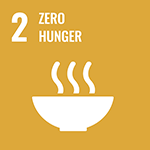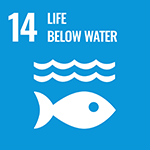Development of Aquaculture Technology for Food Security and Food Safety in the Next Generation
Principal Investigator
ODA Recipient Country
Kingdom of Thailand
Research Institutions in Japan
Tokyo University of Marine Science and Technology / National Research Institute of Aquaculture, Fisheries Research Agency (FRA) / Japan International Research Center for Agricultural Sciences (JIRCAS)
Research Institutions in Counterpart Country
Department of Fisheries (DOF) / Kasetsart University (KU) / Chulalongkorn University (CU) / Walailak University (WU)
Adoption fiscal year
FY 2011
Research Period
5 Years
Overview of the Research Project
Next-generation of aquaculture system promises solutions to current issues
Aquaculture has boomed in recent years worldwide, and now accounts for almost 50% of all fishery produce. However, fish farms face great many problems, including frequent disease outbreaks, securing stable supplies of feed, and maintenance of safety, and there is an urgent need for next-generation technologies that address these problems. As the leaders of Asia's aquaculture industry, Thailand and Japan have teamed up to leverage biotechnology to develop new systems for boosting production of groupers, sea bass, prawn and other commercially important varieties of seafood. In particular, molecular breeding, surrogate broodstock technology, immunization/ vaccines, development of feed alternatives, establishment of stricter seafood safety protocols will be the focus.
Focus also on creation of improved strains as a new departure in aquaculture
This project aims to leverage molecular genetic findings to develop strains that grow rapidly and are resistant to disease and stress. We will also attempt to use certain species of fish as surrogates to produce the gametes of species that have so far proven difficult to culture, as well as developing technologies for other aspects of aquaculture, including the production of alternatives to fish meal as feed, prevention of infectious diseases, and assurance of food safety.
Photo gallery
Research Project Web site
Press Release
Links
Projects
Contact Us
Japan Science and Technology Agency (JST)
Department of International Affairs
SATREPS Group
TEL : +81-3-5214-8085
Related articles by Category
- Bioresources
Bioresources

 Republic of Indonesia
Republic of Indonesia
Promoting the blue economy by utilizing seaweed resources!
Development of Sustainable Seaweed Based Functional Products for Promoting Blue Economy
- Thailand
Environment / Energy
(Global-scale environmental issues)
 Kingdom of Thailand
Kingdom of Thailand
“Natural rubber seeds”, the unlimited potential hiding in natural rubber plantations
Utilization Technology of Rubber Seeds for Green Products to Mitigate Global Warming and Plastic Pollution
- Asia
Environment / Energy
(Carbon Neutrality)
 Kingdom of Cambodia
Kingdom of Cambodia
Using water management to reduce methane emissions from rice paddies!
Development and Social Implementation of Greenhouse Gas Emission Reduction Technologies in Paddy Fields of West Tonle Sap Lake by Establishing a Large Paddy Area Water Management System
- SDGs : Goal.2
Bioresources

 Republic of Indonesia
Republic of Indonesia
Achieve sustainable vegetable production in tropical regions using advanced breeding technology!
Breeding Innovation in Chili Pepper and Tomato to Accelerate Sustainable Vegetable Production in Tropical Regions




















